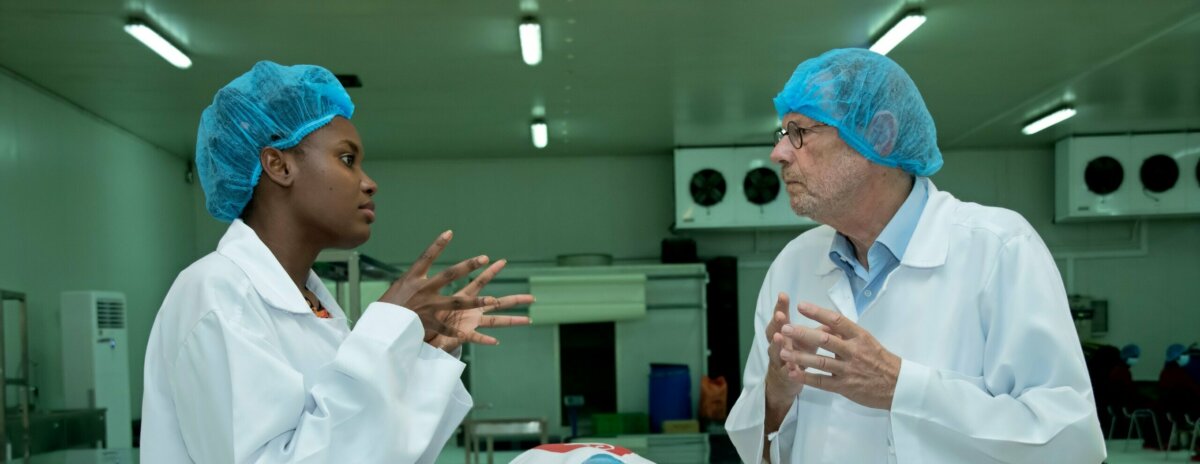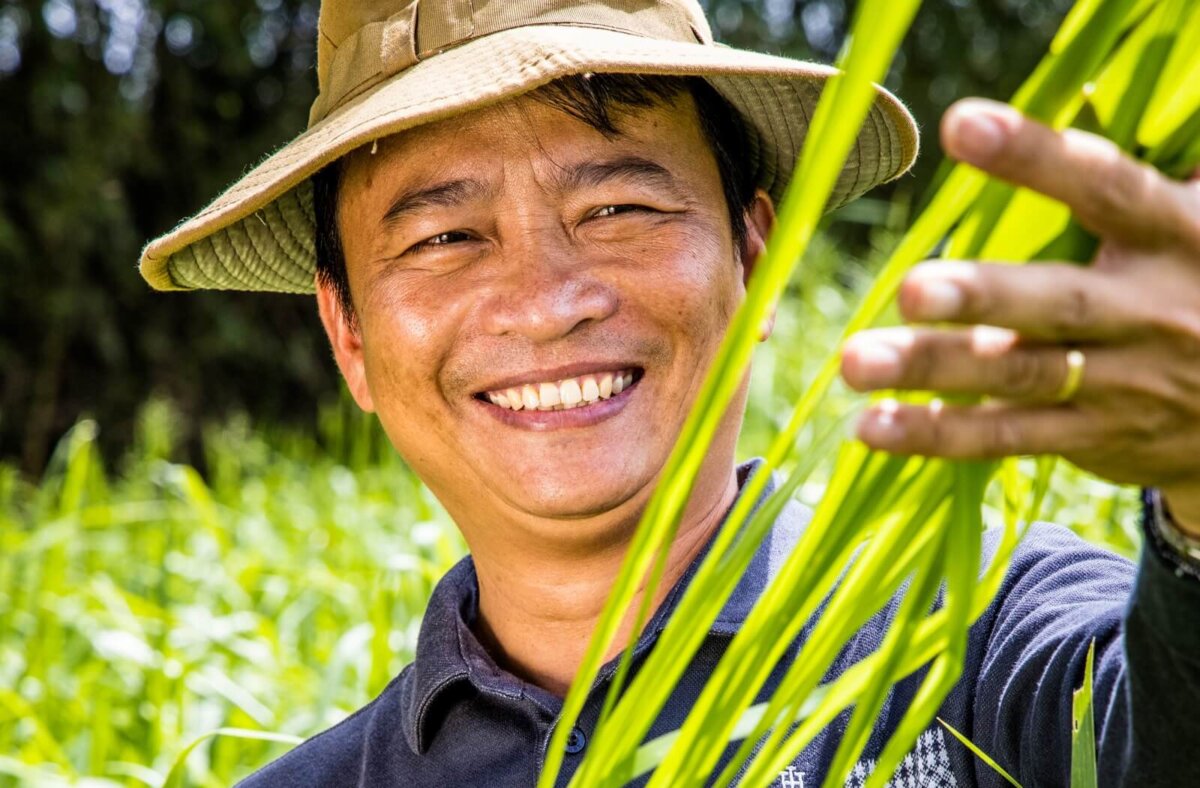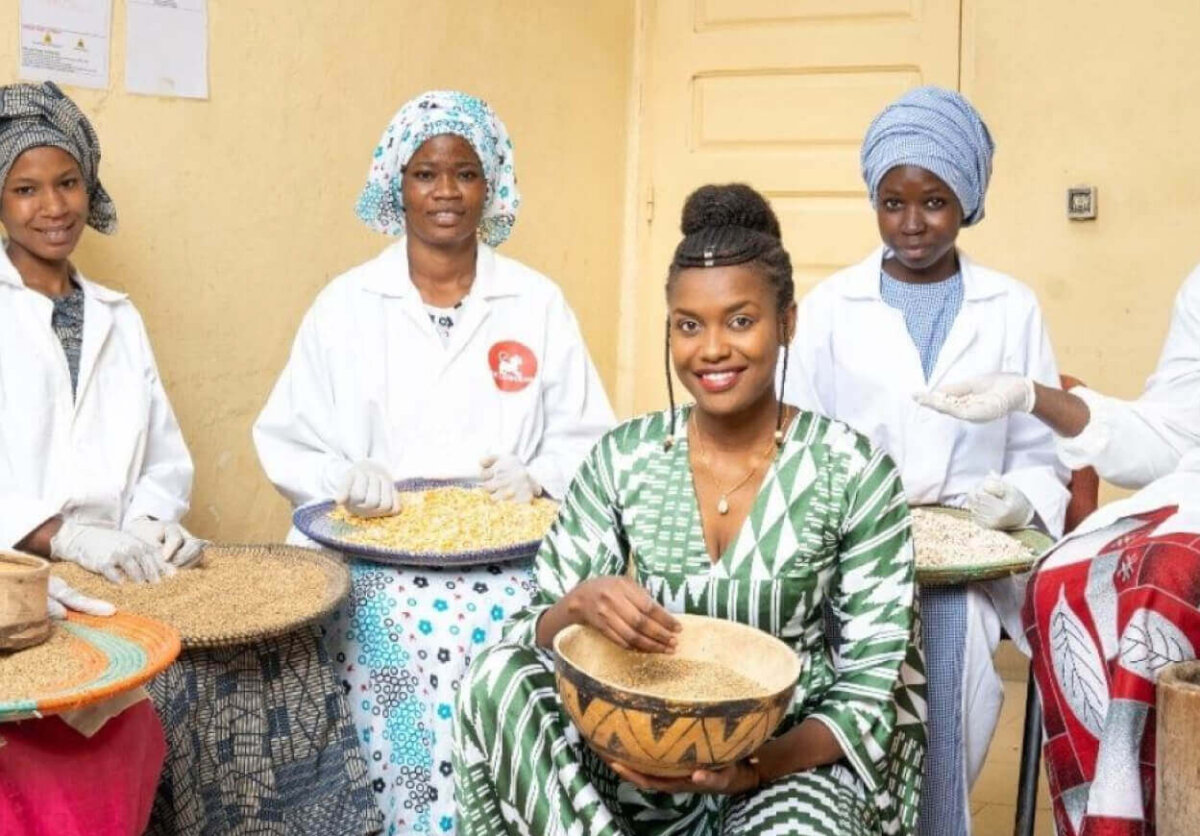- Projects
- From farm to jar in Senegal

Le Lionceau, a baby food company in Senegal, is making a significant impact by producing nutritionally rich baby food using in-country sourced ingredients. Through partnerships with farmers, Le Lionceau supports the economy and communities. They purchase crops from smallholder farmers and educate about nutrition and health. Aiming to reach millions of babies in West Africa and beyond, Le Lionceau plans to expand its production facilities and professionalise their working processes.
Le Lionceau is a baby food company in Senegal that produces nutritionally rich baby food using locally sourced ingredients. The company aims to address the vulnerability of Senegal’s food supply, reduce the dependence on imports, and minimise the post-harvest losses. Co-founder and CEO Siny Samba: “It all started when I was working in France as a research and development engineer for a leading baby food company. That’s where I started to develop this passion for early childhood and my conviction that health depends on the food we eat during the first thousand days of life. Back in Senegal, I realised that 100% of baby food purées were imported. And yet, in Senegal and throughout Africa, we have agricultural resources that are excellent from a nutritional point of view.”

Partnering with farmers
In 2017, Siny chose to return to her country of origin and start the company Le Lionceau with Rémi Filastò, a classmate from agricultural engineering school. By using local cereals, vegetables, and fruits, Le Lionceau strengthens Senegal’s food value chain and offers a wider variety of baby food. The company’s impact touches many stakeholders: it supports 30 employees and buys crops from cooperatives of more than 5,000 farmers. Siny: “We believe in the importance of partnerships with farmers, to convert excess crops into valuable products. Moreover, we offer smallholder farmers a reliable market and income, and teach them sustainable farming techniques to cultivate organic products. We also involve rural women’s groups to work on raw materials pre-processing. Finally, we organise workshops educating parents about nutrition and health.”
Ambitious plans
Le Lionceau’s products have reached 30,000 children so far but they aim to expand their reach to millions more babies in West Africa and beyond. Siny and Rémi plan to establish their own processing unit to increase production and meet the local demand in Senegal. Additionally, the company intends to collaborate with NGOs and governments to develop more affordable and accessible locally sourced baby food for the food aid market. Furthermore, they envision expanding the business globally, bringing the taste and nutrition of locally sourced food to African diasporas in Europe and America.
Introduction of Circles and Lean
Le Lionceau brainstormed with PUM expert Renze Klamer on how to extend the production facilities and grow the business. After a first encounter with the owners, Renze concluded: “The current overwhelming challenge is the lack of space. The company is operating within a spacious house, with production facilities scattered throughout various rooms and areas. However, given the current production volume, this location proves insufficient. The working atmosphere at the company is very positive. The employees demonstrate a strong commitment to their work despite the circumstances. The cooperation has proven to be effective, mainly thanks to high moral among colleagues.” Until expansion of the facilities is realised, it is important to focus on management style, delegation and communications. Renze “I introduced the concepts of Circles and Lean/Agile working. A Circle is a group of colleagues (a team) who cross-functional work together adopting a collaborative and interconnected approach to share knowledge, ideas and resources. To enable the company’s growth with Lean/Agile methodologies, I implemented the five core principles of Lean as the foundation for future development: emphasizing vision-driven leadership, root cause analysis, continuous improvement, respectful communication, and teamwork. Additionally, I brought in Kanban board meetings, where issues are prioritized, solutions are executed in order of importance, and progress is visually tracked on a board with “To do,” “Doing,” and “Done” lanes.”
Future collaboration
Renze has left behind a list of tips and ideas, to continuously improve the way of working within the company. In the meantime, Le Lionceau has found a new location to produce more baby food. Wim Husselman has visited this new site and worked on an efficient layout of the production chain, taking hygiene and food safety into account. Furthermore, he will ensure that good manufacturing practice (GMP) and compartmentalisation are implemented correctly. PUM is very enthusiastic to continue collaborating with Le Lionceau and be part of creating more impact in the whole value chain from farm to jar.





